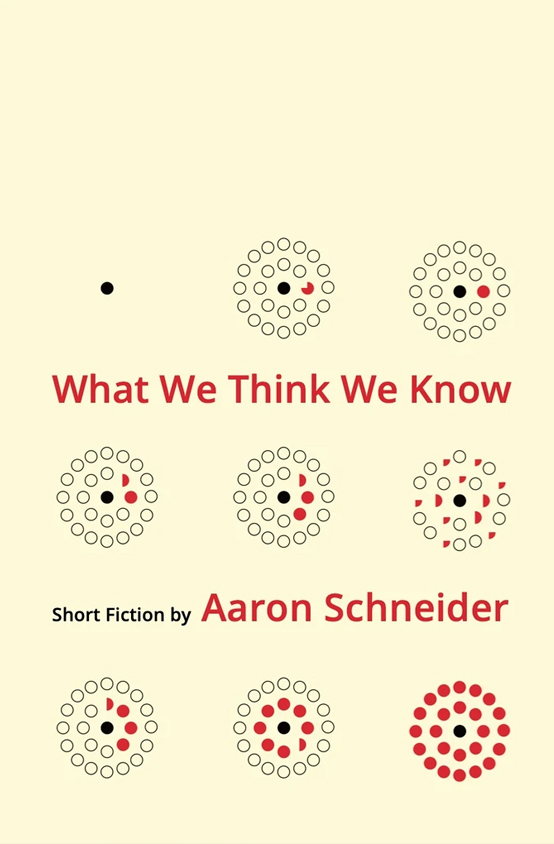USEREVIEW 061 (Capsule): What We Think We Know
Aaron Schneider
What We Think We Know (Gordon Hill Press, 2021)
ISBN 978-1-77422-029-0 | 224 pp | $22 CAD — BUY Here
#CAROUSELreviews
#USEREVIEWEDNESDAY
What We Think We Know is ostensibly Schneider’s debut collection of short fiction, though it tests the limits of that designation in various ways. On the one hand, there’s the fact that two of the stories in the collection are virtually novella-length; and on the more experimental hand there’s the fact that many of these texts might not even be recognizable as stories at first glance. They take the form of annotated charts. Sentence fragments formatted more like poetry. [SILENCE] and unspoken connotations … The very act of calling this a short fiction collection is a provocation. For all the formal experimentation, however, the subjects Schneider chooses are comparatively ordinary. Many of them are restless intellectuals, both within and without the academy. There is Aviva of ‘Weather Patterns,’ who abandons her PhD to start a family with a professor, only to lapse into a “formulaic” and “predictable” affair. There is the father of the narrator in ‘107 Missiles: An Autofiction in Fragments,’ who maintains a decades-long career studying, and intervening in, situations of domestic abuse, despite having no formal training or theory to ground his work. The characters here often know, or try to know, a great deal about the world around them, and yet they understand so little about their own identities, or the identities of people close to them. The only figure in the book who manages to actually “become herself” is Kathleen Scholler, a drolly named, enigmatic scholar who is portrayed only through the fleeting impressions of the single collective ‘we’ narrative voice of her estranged graduate school classmates. This is ultimately a book that challenges what we, as readers, think we know about fiction, and simultaneously calls upon us to question what we think we know about ourselves and those around us.
Recommended excerpt:
‘Appendix C: Happiness and Related Scalars’ (pp. 17–44) is perhaps the most formally inventive of the stories (it looks like pages out of a psychology textbook), and was for me also the most engaging, likely because of the consistent tension between the intellectually objectifying presentation and the emotional content of the work.



